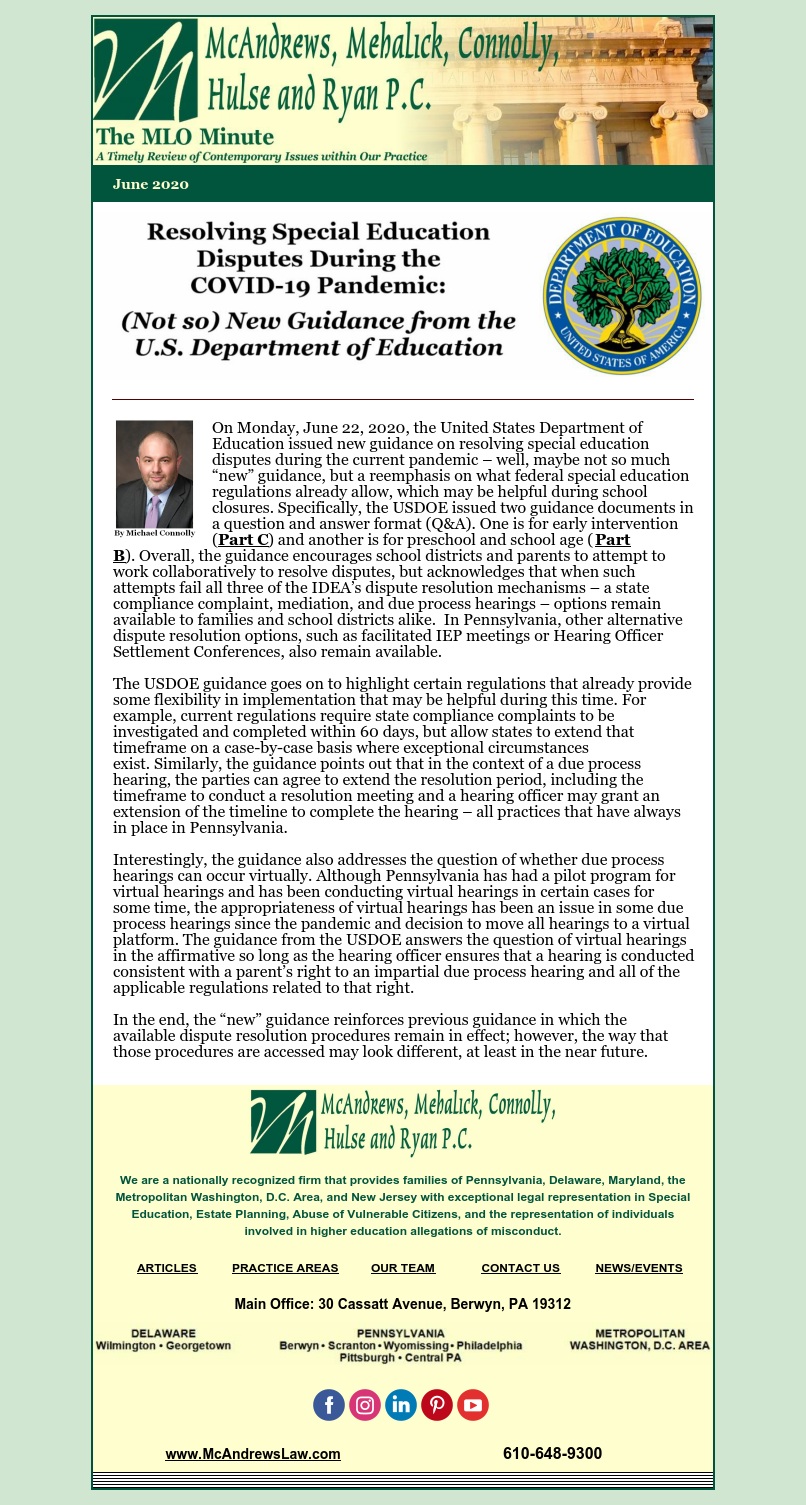June 2020
The MLO Minute: By, Michael Connolly, Esq., Supervising Partner of the Special Education Department
On Monday, June 22, 2020, the United States Department of Education issued new guidance on resolving special education disputes during the current pandemic – well, maybe not so much “new” guidance, but a reemphasis on what federal special education regulations already allow, which may be helpful during school closures. Specifically, the USDOE issued two guidance documents in a question and answer format (Q&A). One is for early intervention ( Part C ) and another is for preschool and school age ( Part B ). Overall, the guidance encourages school districts and parents to attempt to work collaboratively to resolve disputes, but acknowledges that when such attempts fail all three of the IDEA’s dispute resolution mechanisms – a state compliance complaint, mediation, and due process hearings – options remain available to families and school districts alike. In Pennsylvania, other alternative dispute resolution options, such as facilitated IEP meetings or Hearing Officer Settlement Conferences, also remain available.
The USDOE guidance goes on to highlight certain regulations that already provide some flexibility in implementation that may be helpful during this time. For example, current regulations require state compliance complaints to be investigated and completed within 60 days, but allow states to extend that timeframe on a case-by-case basis where exceptional circumstances exist. Similarly, the guidance points out that in the context of a due process hearing, the parties can agree to extend the resolution period, including the timeframe to conduct a resolution meeting and a hearing officer may grant an extension of the timeline to complete the hearing – all practices that have always in place in Pennsylvania.
Interestingly, the guidance also addresses the question of whether due process hearings can occur virtually. Although Pennsylvania has had a pilot program for virtual hearings and has been conducting virtual hearings in certain cases for some time, the appropriateness of virtual hearings has been an issue in some due process hearings since the pandemic and decision to move all hearings to a virtual platform. The guidance from the USDOE answers the question of virtual hearings in the affirmative so long as the hearing officer ensures that a hearing is conducted consistent with a parent’s right to an impartial due process hearing and all of the applicable regulations related to that right.
In the end, the “new” guidance reinforces previous guidance in which the available dispute resolution procedures remain in effect; however, the way that those procedures are accessed may look different, at least in the near future.





